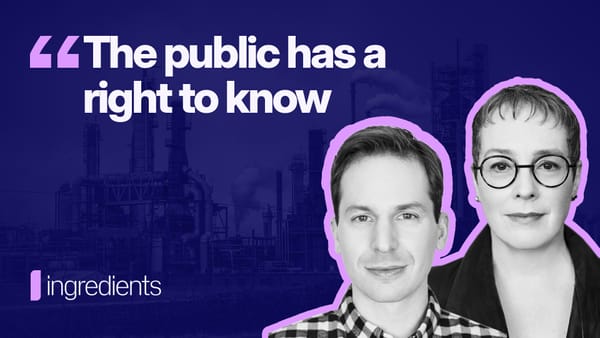Electricity is not the only way that AI is taxing the planet. The data centers that house the brains of AI also use a lot of water. Overall, Microsoft’s water consumption went up 34 percent in 2022 over the prior year, Google’s 22 percent. In 2023 Microsoft’s entire operations, including all data centers, consumed enough water to fill 15.6 billion water bottles.
But it’s very difficult to determine just how wasteful AI development has been because of the secretiveness of big tech companies, especially in the last few years as AI has become the Hot New Thing. And water use is no different.
You may have heard a statistic floating around that having a conversation with ChatGPT is like pouring out a bottle of water. For our third installment in our videos series on the climate impacts of AI, we looked into whether that’s true.
The most authoritative study on the subject comes from a group of UC Riverside researchers who have been looking into data center water use for more than a decade. They found that, when taking the water used to generate the electricity that powers data centers into account—as well as the on-site water needed to cool servers—a bottle of water’s worth of water is consumed in anywhere from 10 to 70 queries, although most data centers are within the 20 to 50 range.
But this estimate of AI’s water use only considers water consumption, or the amount of water that is not returned to the water supply. Far more water is used by data centers, even though it eventually ends up back in the water supply. In water-scarce regions even this temporary removal can have real consequences during periods of shortages, which are becoming more common around the world thanks to climate change. In other words, the water bottle estimate is likely an underestimate – even more water is often rendered unusable in the process of cooling the computers that are the brains of AI.
But the real problem here is not necessarily the volume of water data centers use, but the tradeoffs between using less water and using greener energy. Places that are hot and dry tend to produce more solar power, and places that are cool tend to use more water to generate electricity. There are very few places where it is practical to use green energy and use relatively little water. And the places where that is possible, like Ireland, are so overloaded with data centers already they have a moratorium on building new ones.
So where does this leave us? Big Tech’s energy and resource use is trending in the wrong direction. They’re using more, emitting more, and hoping AI magically solves all these problems. Instead, it’s making those problems worse.




